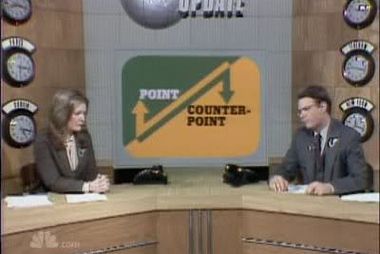 The United States Department of Justice has described Apple?s defense against allegations that it conspired to illegally fix e-book prices ?unconvincing? and ?untethered from both precedent and logic.?
The United States Department of Justice has described Apple?s defense against allegations that it conspired to illegally fix e-book prices ?unconvincing? and ?untethered from both precedent and logic.?
Evidently, Apple feels much the same way about the DOJ?s charges.
In an 81-page April 26 filing that was made public today, Apple pointedly denied federal prosecutors? accusations, saying the discussions they?ve painted as collusion were simply tough business negotiations and that their end result ? an ?agency? e-book pricing model where publishers, not retailers, set prices ? made the e-book market more competitive, not less.
?Apple did not conspire to fix e-book prices,? the company said in its filing. ?The evidence proves that Apple acted independently, to further its own legitimate business goals, in negotiating agency agreements with the publishers to enter the e-book market.?
Apple disputes the DOJ?s view that it was the ?ringmaster? of a publisher conspiracy to eliminate price competition and raise e-book prices. Instead, it claims it was simply a new entrant in a market that was ?roiled by a public conflict between publishers and Amazon? ? a market that was already considering the agency pricing model currently at issue.
?Amazon at the time sold 9 out of every 10 e-books, and many publishers publicly disagreed with Amazon?s uniform, below-cost pricing strategy for New York Times bestsellers,? Apple said in its filing. ?This tumult in the industry inspired the second largest e-retailer, Barnes & Noble, to push for agency agreements with the publishers. And Amazon used an agency-like model for small publishers and self-published authors. In other words, Apple did not introduce agency to the e-book industry; it was simply the first to reach an agency agreement with the industry?s largest publishers.?
And for a new entrant to the e-book market, as Apple was at the time, the agency model was a logical one. The company was looking for a 30 percent commission on every sale; it was hardly going to get that from publishers at the $9.99 price point Amazon had established.
Which is not to say that it was opposed to $9.99. According to its filing, it wasn?t. As long as it was able to collect that 30 percent commission, Apple said it didn?t particularly care what price publishers sold their books at. Yes, it required a ?Most Favored Nation? agreement from publishers that gave it the right to lower prices to match low prices offered by competing retailers, but it argues it did this to remain competitive with Amazon, not to influence its business model.
?The evidence shows that Apple told the publishers that they were free to remain on a wholesale model with other retailers, even as the publishers sold e-books on Apple?s bookstore under an agency arrangement,? Apple argues.
And that?s Apple?s broader point in this filing: By negotiating for an agency pricing model with publishers, it was simply seeking to enter a new market and offer competitive prices. It wasn?t colluding to push e-book prices higher. It wasn?t attempting to change Amazon?s business model. It was just conducting business ? legitimately. To Apple, the DOJ?s allegations that it was doing anything else, let alone engaging in an ?illegal conspiracy? that ?increase[ed] the retail prices of trade e-books? is ?demonstrably false.? And the company insists the facts are on its side:
Average prices for trade e-books have fallen, and output, whether measured in the number of sales, the number of titles, or the types and quality of e-books offered, has increased substantially. These facts are undisputed.
Apple also fundamentally transformed the e-reading experience, leaving rudimentary, black-and-white, and expensive single-purpose e-readers (e.g., the Kindle) in the dust. The e-book world changed dramatically when Apple launched its iBookstore on the iPad in April 2010. At the time, 400,000 e-book titles were available to the consuming public; today, readers can download more than 1.7 million e-books. Apple has also created or spurred a number of the most important e-reading hardware and software innovations, such as full-color, interactive, and vivid digital e-books.
The bottom line, said attorney Orin Snyder of Gibson, Dunn & Crutcher, is that ?Apple should be commended, not sued. Apple injected much-needed competition and innovation into the eBook business. ? The DOJ?s case is based on fictions and incomplete quotations. The actual evidence proves that Apple did not conspire to fix prices in the eBook business. We look forward to trial.?
The DOJ?s case against Apple is currently scheduled to go to trial on June 3 in a New York District Court. Apple?s filing in full is below, and there?s more on the DOJ?s view of the case here.
Apple?s Pre-Trial Memorandum of Law _as Redacted_ ?
Source: http://allthingsd.com/20130515/apples-e-book-argument-deals-with-publishers-improved-competition/
drew brees sandusky Sam Champion Hulk Hogan sex tape orioles Sarah Jones chicago marathon
No comments:
Post a Comment
Note: Only a member of this blog may post a comment.